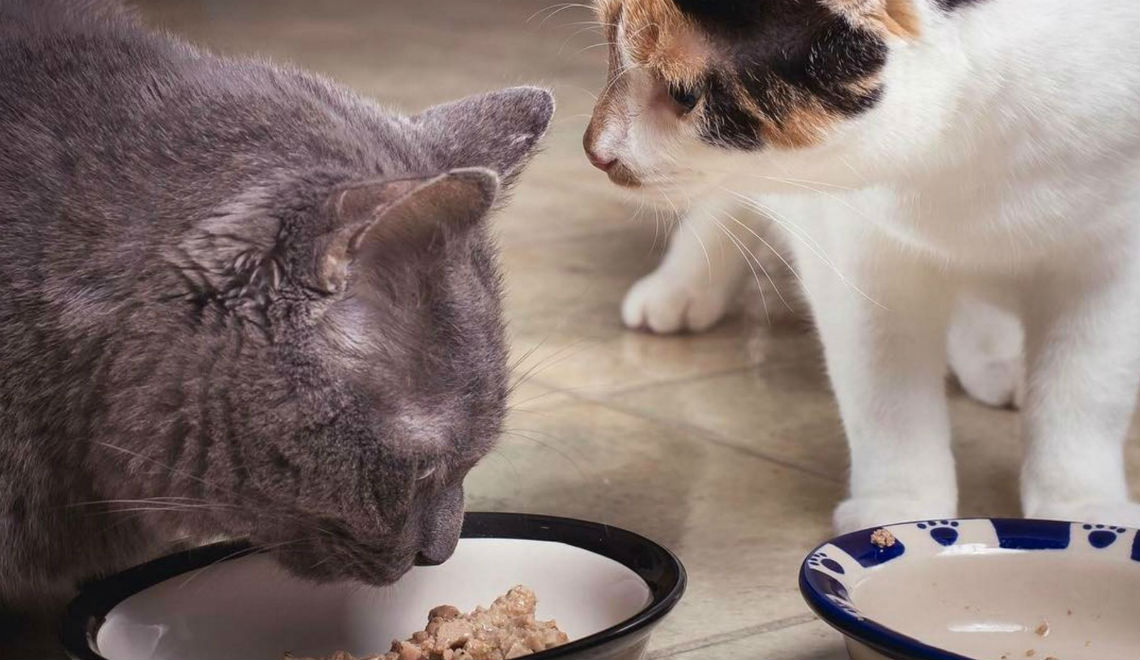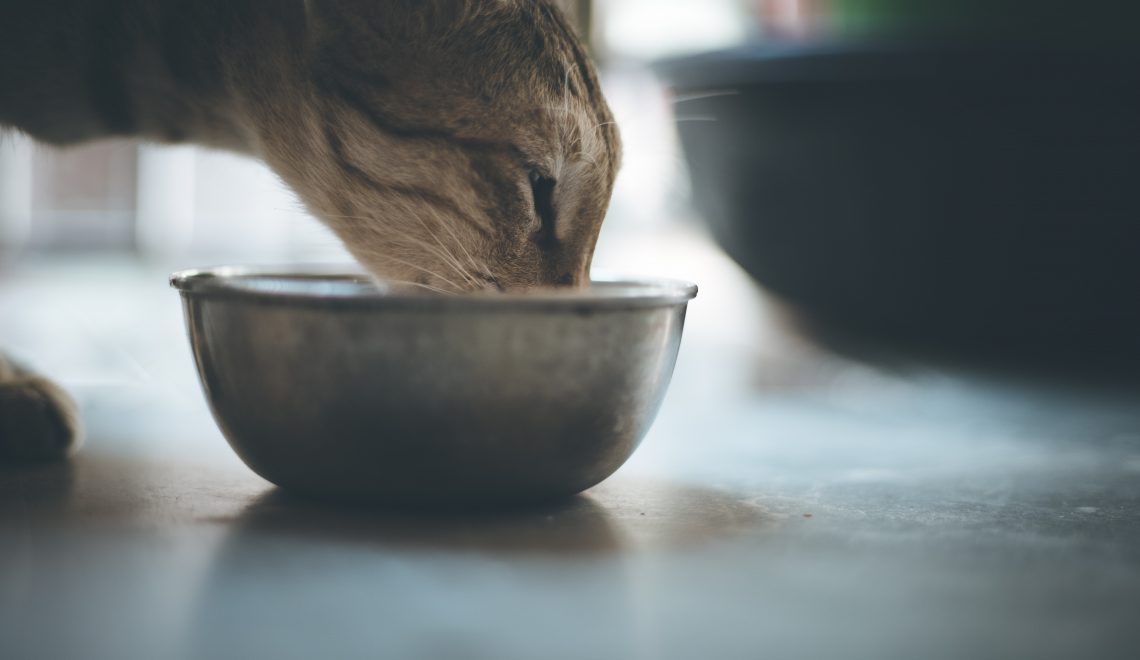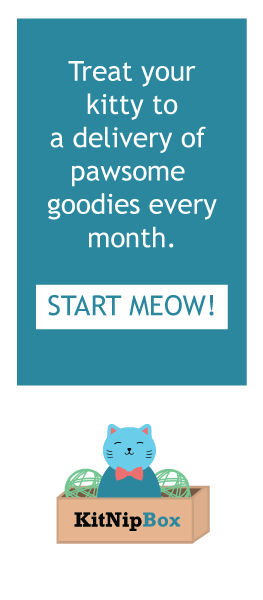A List of Cat-Safe Ingredients for Cat Treats and Food

Whether it’s for cooperating (i.e.,: “purrlease get off the counter, kitty!), or being so adorable, it’s not unusual for people to spoil their cats with treats! Most of us feel confident knowing that the cat treats we’re serving our kitties are derived from non-toxic ingredients.
Occasionally, though, people serve their kitties human food as treats, forgetting that, or simply not being aware of how, certain ingredients can be disruptive to kitties’ digestive systems. It’s also not uncommon for cats to sneak their way into food pantries or cabinets, gaining access to ingredients that are not meant for them. Cats ingesting this type of food can elicit bad consequences.
As loving and concerned cat parents, it’s our responsibility to keep kitties enjoying nourishing food filled with 100% cat-safe ingredients! To help stay educated on what common foods are harmless and harmful for cats, we have compiled this master, alphabetically sorted list for cat parents to reference. When in doubt, this article will hopefully provide meaningful guidance.
ALWAYS BEAR IN MIND:
*Regular meals should be a high-quality, protein-rich cat food (look for an AAFCO statement on the label). Unless your cat has unique dietary restrictions, store-bought cat food and treats are usually safe for your cat’s consumption. Remain cautious and aware of the rare instances that common cat treats or foods are recalled. For your added convenience, we will be citing instances of current food recalls at the beginning of this article.
*Cats should only get “extras” occasionally. Before serving your cat food that’s intended for people, first and foremost, consult with your vet about how often and what cat treats you’re adding to your cat’s diet. Overfeeding can lead to an overweight cat, as well as health problems.
*Purrlease note: This is an ever-evolving list. We will continue to update this article as more news about healthy and unsafe cat food emerges. Any additions to this list are always welcome – please email them to meow@kitnipbox.com!*
Cat Food Recalls:
[As of February 13th, 2017]: PetSmart issued the recall of Wellness Adult Cat Foods in 12.5 oz. cans Friday. The company also found the products were contaminated with metal. No cases of illness or injury related to this product has been reported yet, but anyone who has purchased the recalled food should stop feeding it to their pets and bring it into a PetSmart for a full refund or exchange. More information on this developing story can be found here.
[As of January 11th, 2017]: The J.M. Smucker company has recalled certain lots of 9Lives, Ever Pet, and Special Kitty due to possible low levels of thiamine (vitamin B1). No illnesses have been reported and the recall has been expanded out of “an abundance of caution.” More information on this developing story can be found here.
Safe Ingredients for Cat Treats and Food:
Asparagus, steamed (WebMD)
Bananas, frozen or fresh (Mom.me)
Barley, cooked (WebMD)
Beef, cooked (WebMD)
Blueberries (Modern Cat)
Broccoli, steamed (WebMD)
Brown rice, cooked (WebMD)
Cantaloupe, fresh (WebMD)
Chicken, cooked (WebMD)
Cucumber, fresh (WebMD)
Corn, cornmeal, cooked (WebMD)
Couscous, cooked (WebMD)
Deli meats, lean (Mom.me)
Eggs, cooked (WebMD)
Fish, cooked (WebMD)
- Smoked fish, aka Lox (Modern Cat)
- Sardines (Modern Cat)
Green beans, steamed (The Nest)
Oats, cooked (WebMD)
Peas, fresh or frozen (Modern Cat)
Spinach (Modern Cat)
- Spinach also contains calcium oxalates, which can activate the creation of crystals in the urinary tract, so cats with urinary or kidney problems should avoid it.
Turkey, cooked (WebMD)
Watermelon (Modern Cat)
Wheat berries, cooked (WebMD)
Zucchini, steamed (The Nest)
Toxic Ingredients for Cat Treats and Food:
Alcohol (WebMD)
Baby food (PetEducation)
- Most baby foods are fairly safe for cats to eat, but some contain onion and/or garlic powder, which are both toxic to cats
Bones (Vetstreet)
Broth, low sodium, beef or chicken (Modern Cat)
Bread dough (WebMD)
Candy (PetHelpful)
Chives (VetStreet)
Currants (PetEducation)
Chocolate (WebMD)
Dairy, cheese and milk (PetEducation)
- While some kittens and young cats can tolerate small amounts of dairy, many, especially as they mature into adulthood, are lactose intolerant
Dog food (PetHelpful)
Eggs, raw (WebMD)
Energy drinks (Vets-Now)
Fat trimmings (Vets-Now)
Fish, raw (WebMD)
Garlic (WebMD)
Grapes (WebMD)
Liver (PetHelpful)
Meat, raw (WebMD)
Mushrooms (PetEducation)
Nuts, Macadamia (WebMD)
Onions (WebMD)
Persimmons (PetEducation)
Raisins (WebMD)
Rhubarb leaves (PetEducation)
Salt (PetEducation)
Tea (Vets-Now)
Tobacco (PetEducation)
Tuna (PetMD)
- When prepared for cat consumption, tuna is fine. Tuna sold for human consumption, however, can cause digestive issue for cats when given as an occasional treat in small amounts. It can even cause a painful condition called steatitis, or inflammation of the body’s fat, when fed on a regular basis.
Vitamin supplements for humans, containing iron (PetEducation)
Xylitol (WebMD)
At KitNipBox, we uphold an extraordinarily high standard for all of the treats and food items that we put in our boxes. Each of our cat food and treat partners undergoes an aggressive vetting process to ensure that the quality and safety of their products adheres to our expectations. It’s our team’s number one priority to keep our kitty customers healthy!







![Dj Scratch mixing some beats. 🎧 🎶 #Mewsic #KitNipBox
[via Instagram | @dharmacatnitiative]](https://www.kitnipbox.com/meow/wp-content/plugins/instagram-feed/img/placeholder.png)